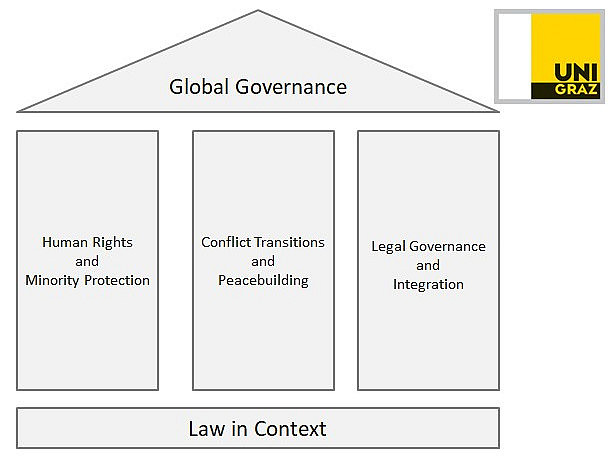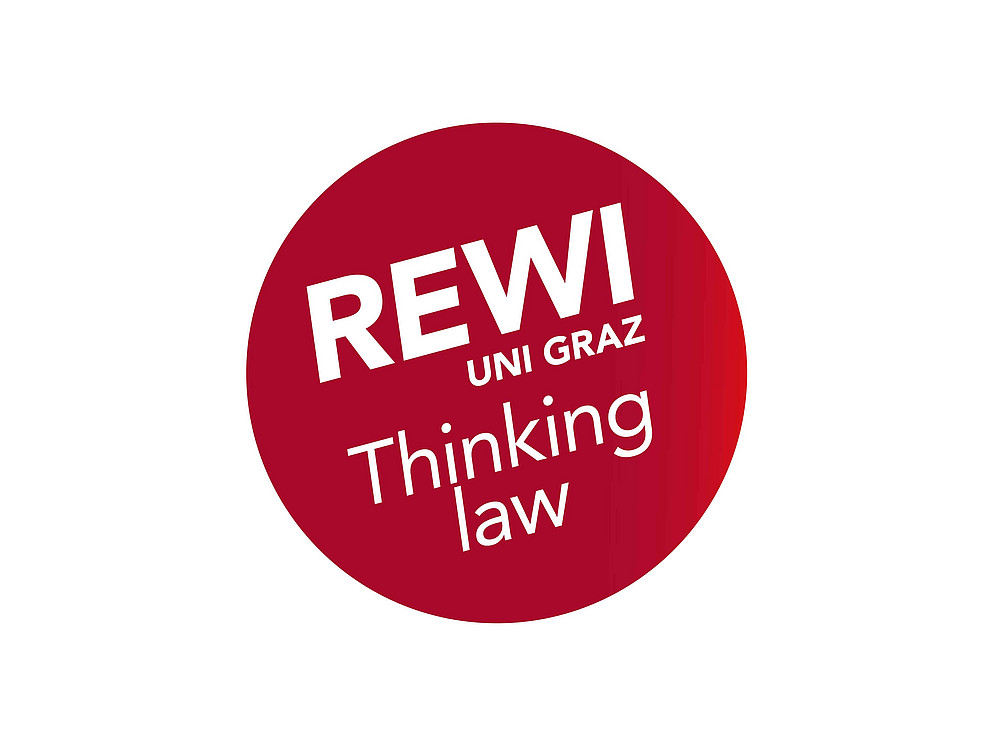Global Governance
The department of Global Governance, based at the Institute of the Foundations of Law, explores cultural, political and legal challenges underlying the processes of Europeanization and globalization. We are committed to bringing together wide-ranging expertise to tackle multi-disciplinary issues on local, national, transnational and international dimensions.
The department of Global Governance embraces an interdisciplinary frame of reference based on law in context. Our work incorporates approaches and methods of law, political and social sciences and humanities, as well as cultural sciences in research, teaching and practice. Cross-disciplinary methods and approaches are applied across three dimensions: (1) research; (2) intervention and evaluation research; and (3) training and practice.
The department has three main focal points:

Three main focal points of the Department Global Governance
This focal point is dedicated to the contexts and narratives underlying the protection and effective enforcement of human and minority rights on national and international level. We explore the challenges of social integration in the context of migration and cultural pluralization. Our aim is to illuminate the guarantees of diversity through law from multiple perspectives, such as antidiscrimination regimes and the rights of ethnic or religious minorities.
Within the focal point Conflict Transitions and Peacebuilding, we look at violent and non-violent conflicts in (post)conflict zones. We explore the causes and dynamics of local, national, transnational and international conflicts, which are shaped and amplified in particular by the forces of identity politics and religion. The options for action or intervention in such conflicts are investigated through the lenses of law as an instrument for compromise and conflict resolution. The analysis bears on the policy and social sciences approaches inherent to peace and conflict studies, ‘classical’ paradigms of peacebuilding (interactive conflict resolution, conflict transformation) as well as newly emerging perspectives on post-liberal peace and conflict transition.
This focal point is dedicated to the theories and approaches underpinning political institutions, the functioning and development of the rule of law and democracy, transnational and regional processes of integration (with emphasis on Europeanization) as well as comparative analysis of political systems and constitutions. The processes of state transformation past and present are examined from the vantage point of legal development. We look at the legal and political factors underlying the rule of law crisis in the European Union, the processes of (dis)integration and Europeanization; using the tools of interdisciplinary inquiry, we consider the shifting relationships of power in the Eurasian geopolitical space. Aiming to situate the European conceptions of statehood and law in a global context, we draw on the conceptions of cultural differences informed by geopolitical and geostrategic factors.
Office Management
Claudia Namesnik | +43 316 380 - 3602 Institut für Rechtswissenschaftliche Grundlagen https://oeffentliches-recht.uni-graz.at/de/arbeitsbereichbezemek/ |
| +43 316 380 - 3280 Institut für Rechtswissenschaftliche Grundlagen Mo.-Do. 9.00 Uhr - 12.00 Uhr, Freitags ist das Sekretariat geschlossen! http://rewi-grundlagen.uni-graz.at/ |
